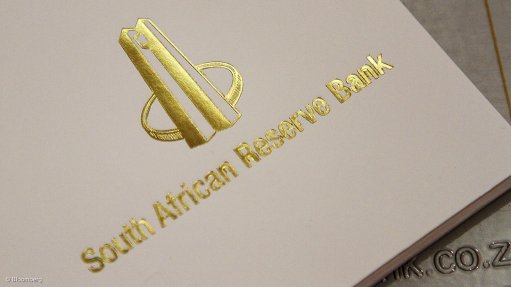
Photo by: Bloomberg
The confusion created by the African National Congress's (ANC's) conflicting remarks about expanding the mandate of the South African Reserve Bank (Sarb) was unlikely to frighten investors much more than they already have been, said economist Sifiso Skenjana.
ANC Secretary General Ace Magashule's remarks on Tuesday that the party's national executive committee had resolved that the Reserve Bank's mandate would be changed were met with denials from Finance Minister Tito Mboweni and ANC's sub-committee head for economic transformation Enoch Godongwana.
In his rebuttal, tweeted hours after Magashule’s briefing, Mboweni maintained that quantitative easing would not become the order of the day at Sarb, Fin24 reported.
Skenjana told Fin24 on Wednesday that determining the mandate of the Reserve Bank was not within the ambit of the ANC as a political party. "It depends on how you want to look at it. The ANC does not determine the mandate for the Reserve Bank and investors need to know that. The considerations have to do with the extent to which the country has money and its ability to give guarantees," he said.
Skenjana said while facilitating economic growth was also a part of the mandate of the Reserve Bank, the ANC's suggestion that it play a role in boosting employment was not feasible as the Sarb had no "levers" to influence this.
"The challenge is that politics will always be politics. You may see an effect on the currency. Any other concerns would be on the back of GDP number more than the mandate of the Reserve Bank," Skenjana said.
He added that the policies of the ANC related to expanding the mandate of the Reserve Bank did not carry water. He said the noise from Tuesday's misadventure was not likely to impact investment in any material way or worsen panic significantly.
"It's stupid to anyone who understands how the markets work. Quantitative easing affects interest rates and in essence the outstanding balances don't get reduced just because you put more money in the system. It does not change the debt itself," said Skenjana.
Investec chief economist, Annabel Bishop, said the announcement and counter announcements on the Sarb's independence, came at a poor time for the rand, which typically sees material risk from the second quarter of each year to the end of the third quarter.
"Indeed, a loss of Sarb independence may not only result in a credit rating downgrade for SA, but could also see a massive negative impact on foreign portfolio investment, key funders of SA's government debt, and so cause massive sales of portfolio assets and concomitant substantial rand weakness, aiding higher petrol prices, as occurred last year," said Bishop.